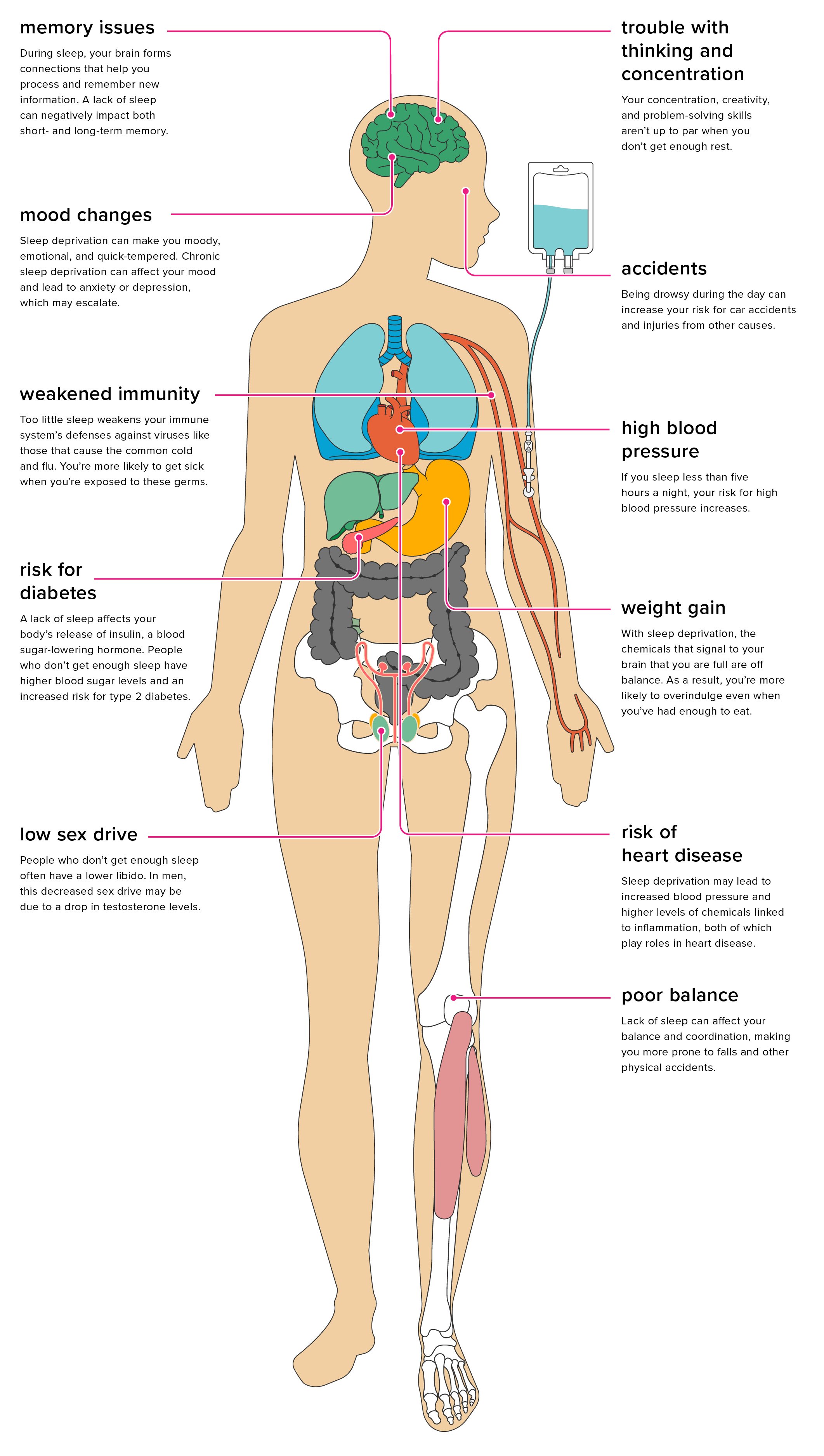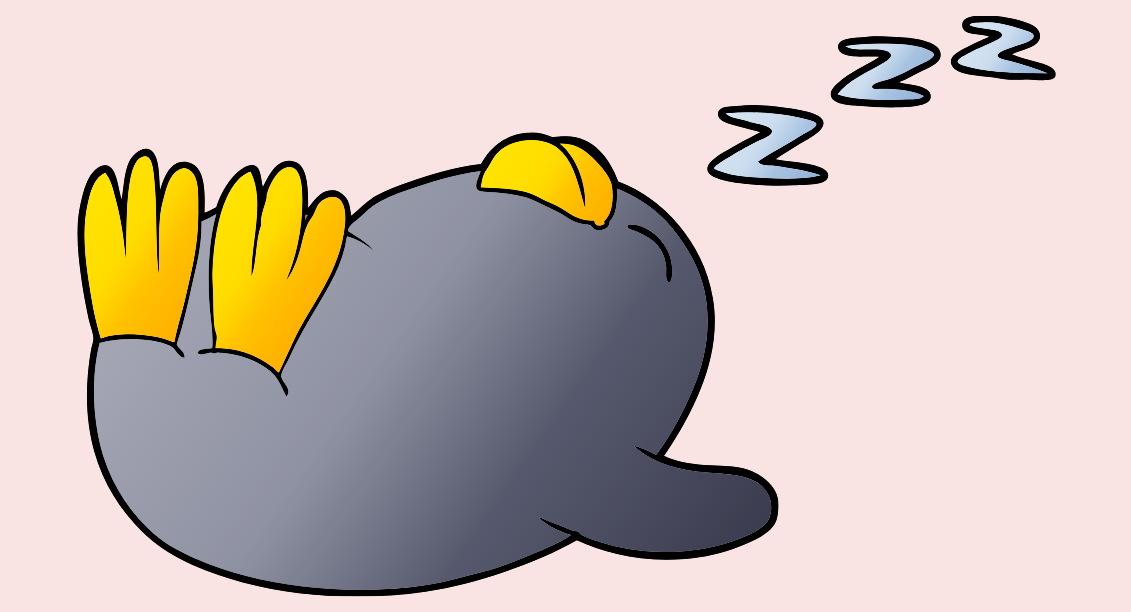If the average person lives to be 75 years' old, they will spend about 25 years of their life asleep. It’s perplexing to think that one-third of our entire lives will be spent unconscious. But, mother nature does things for a good reason, and the fact that sleep takes up such a significant part of our lives must mean that it’s important.
As it turns out, sleep keeps us alive and well. It’s ones of the most essential physiological function of the body, and we’ve been messing with it ever since we’ve started using artificial light and personal computers.
Our bodies know what to do, when the sun rises, our bodies release acetylcholine (chemical that triggers us to move) and naturally wakes us up, and when the sun sets, we are flooded with melatonin (sleep chemical). With the widespread use use of devices that produce blue light, along with our unspoken mission to illuminate the night; we are losing out on our natural inclination to sleep. As a result, we’re more tired than ever, more stressed and more irritable.
What happens when we sleep
Sleep is essential for mood regulation and learning, because our brain consolidates all the new information and stores it in our long term memory. Sleep also turns off our pre frontal cortex. This part of our brain uses the most amount of energy and serves as the ‘prison warden’. It keeps the rest of our mind in check. But, this takes up a lot of energy, and when we sleep, we lower our brain activity in this region and replenish the stores that fuel it for the upcoming day. Sleep also keeps our bodies healthy and functioning well. 8 to 9 hours of daily sleep is essential to ensure that we are becoming smarter, faster and stronger.
What happens when we're sleep deprived

Common myths about sleep
The nightcap myth
We have two principle types of sleep:
-
Non REM sleep, and
-
REM sleep
Non-REM sleep is what happens when we have an afternoon nap, and REM sleep is deep sleep, aka, dream sleep – where we feel replenished and refreshed after waking up.
It turns out that alcohol is really good at blocking our REM sleep. Even though we feel relaxed and sleepy, we can’t get our brain to truly reach that deeper level of restorative REM sleep. That’s why we wake up feeling groggy and unfocussed after drinking a bit too much the night before. Another reason why alcohol interrupts our deep sleep is because we have to frequently get up and go to the bathroom during the night. It's a diuretic, and when we put it in our bodies, our liver tries to filter it out asap.
The ‘lost time’ myth
Somewhere along the way, we started to see sleep as something that holds us back from getting things done. We started to see it as wasted time, and we actively drove ourselves to have less of it. Well, sleep is like breathing, we absolutely can’t live without it. It’s the necessary investment that we make in ourselves to create a surplus of energy, focus, learning and wellbeing.
The ‘I don’t need 8 hours’ myth
Today, we treat a lack of sleep as a badge of honour. We look at people who don’t get much sleep and think that they are being so productive that they can’t make time for rest. The data shows that even getting 5 to 6 hours of sleep per night is not enough. If we sleep under the 8-hour minimum we are at risk of prematurely aging our bodies and messing with their natural circadian rhythms. So, it’s clear that if we don’t sleep well, we don’t live well – because sleep does more than making us feel rested, it regulates our mood, our appetites, our sex drive, our focus, our memory, our energy and our natural wellbeing.
Why our dreams are so crazy
We’ve all had crazy dreams at some point. Where things are so illogical and incredible that they couldn’t possibly be real. If the dream is intense enough, we don’t even know that we’re dreaming, and we just accept all the craziness that happing in front of us. There’s a reason for this – when we sleep our pre-frontal cortex drops in activity, substantially. It’s the part of the brain that keeps us behaving logically. So when our prefrontal cortex takes some downtime to replenish and recharge; our mind has nothing to police it. That’s why when we have intense dreams, we can’t tell it what’s real and what’s not.
“When the cats are away, the mice come out to play” – Old English saying
Sleep helps our memory and creativity
Sleep helps to transmit information into the memory centres of the brain. When we sleep, chemicals in the brain are released to process and consolidate newly acquired information. So, if we don’t sleep well, we can’t learn well. History is littered with great minds who were constant nappers.
Take Thomas Edison for example (inventor of the light bulb). He would lay back on a chair and hold a steel ball bearing in his hand. He’d let his hand hover out over the arm rest and he'd place a steel pan underneath it. As Edison began to slip into deep sleep, he’d gradually lose his grip on the ball bearing. This caused it to drop and hit the steel pot. He'd jerk awake, and would start writing down out all the creative ideas from his subconscious.
Sleep makes us stronger
People who don’t sleep well have a hard time competing athletically. For one, when we're sleep deprived, our bodies can’t regulate our immune functions properly. Our central nervous system can also get disrupted. This is the information highway that lets our brain give directions to the rest of our body. Our muscles also become weaker because our bodies can’t reduce our cortisol level (stress hormone). If we are trying to stay fit and healthy, we can’t skip out on a full night’s sleep.
Sleep and learning
Sleep is really good for creating automaticity in our brains. When we’re learning something, we inevitably face areas that are challenging. In the initial stages of learning, we use a lot of our conscious brain to focus on the things we need to do in rigid and segmented actions. Sleep helps our brain to link all those actions together in our subconscious and execute one fluid thought process and one seamless movement. We’ll often hear musicians say that they just couldn’t nail a musical passage the night before. The following day, after they’ve had a good sleep, they say that they can play the musical passage fluidly, almost like magic.
When we don’t sleep, our metabolism goes out of whack
A lack of sleep has been linked to being overweight. When we deprive ourselves of sleep, our body releases hormones that make us feel hungry. This is the reason for the ‘midnight snack’ tradition – the longer we're awake the more we want to eat, and our bodies want high calorie foods; full of salt, carbohydrates and sugars. Our bodies also release more insulin when we’re tired, and that means that we are storing fat instead of burning it.
Why sleep makes no sense
We see that sleep is incredibly important for our wellbeing. But, it still makes no sense from an evolutionary point of view. When we sleep, we are taking away time that we could use to reproduce, we’re extremely vulnerable to predation and we’re not finding food or caring for our young.
“If sleep does not serve a vital function, it is the biggest mistake of the evolutionary process ever made” – Matthew Walker, PhD
So, we don’t understand sleep as much as we’d like to, it’s still somewhat of an anomaly to scientists. But, they are unanimous in saying that sleep is vital. We shouldn’t try and outsmart sleep by doping up on caffeine, pulling all-nighters and working crazy hours. Sleep is a function that has been honed and refined for hundreds of millions of years. It’s not something that we can outsmart and circumvent on a whim.
So, if you’re struggling with learning something, feeling like you don’t have enough energy, feeling unusually anxious and edgy, or you just feel tired and drained – get some sleep.


